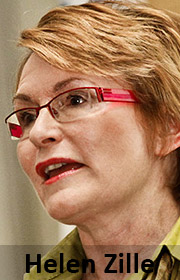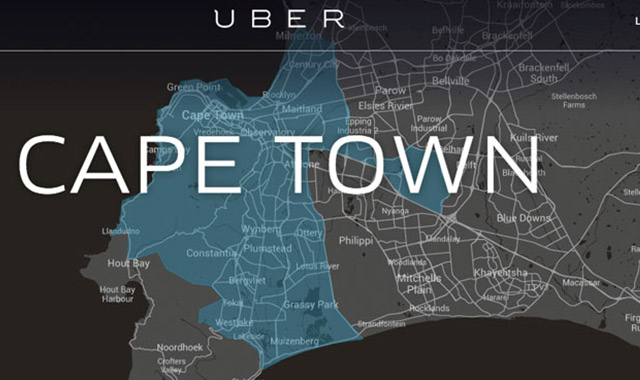 Government is a complex beast. It can only do what the law specifically allows it to do, not what people (or the premier) think it should do. Decision making requires long processes, by numerous people in different departments, governed by a whole range of laws, regulations and by-laws.
Government is a complex beast. It can only do what the law specifically allows it to do, not what people (or the premier) think it should do. Decision making requires long processes, by numerous people in different departments, governed by a whole range of laws, regulations and by-laws.
With that in mind, let me deal with the controversy that exploded in Cape Town last week about Uber, the e-hailing cab service. For the uninitiated, Uber is a smartphone application that is revolutionising the metered-taxi industry. It allows consumers to request a trip, locates them, and refers them to the nearest available Uber partner driver. It has proved to be a “cool”, safe, cheap and efficient service. Young people love it, and many parents (including me) sleep better at night knowing that their kids will “Uber home” rather than take risks after a night out.
So it came as a shock to discover that over 200 Uber taxis have been impounded by the traffic police since the beginning of the year.
Last week, public frustration exploded on Twitter. Within hours, #CTneedsUber was trending and 14 000 people had signed an online petition to legalise them.
But here’s the thing: Uber’s e-hailing service “does not fall into any of the categories of the National Land Transport Act”, as an official explained to me this week. It is also not provided for in the integrated transport plan. And any process to regularise the e-hailing service must follow the requirements of the Promotion of Administrative Justice Act. Furthermore, just last week, a court case in the US concluded that Uber drivers were not self-employed, but employees of the Uber company, a decision with far-reaching legal implications.
In other words, Uber is a market disrupter. It was unheard and unthought of when South Africa’s legal framework for public transport was put in place.
This situation creates a crisis for government. Officials must act within the law. But the law doesn’t envisage or cater for e-hailing services. The result is government paralysis.
No wonder Business Day gave us a “red light” for not being “nimble” enough in dealing with Uber. But a figurative “red light” is far easier to survive in government than a qualified audit from the auditor-general for “irregular and unauthorised expenditure”.
So time drags by while officials try to squeeze the new reality into the prevailing legislative framework, and the city prepares a by-law to legalise and regulate e-hailing. The solution currently on the table is to license Uber taxis in terms of the clauses covering metered taxis, while providing certain exemptions.
But why insist on licences at all, several people have asked? Surely, consumer choice should be regulated by the market? In any event, they say, Uber is self-regulating through a star-rating system.
When it comes to public transport operators, it is not so simple. Government cannot evade responsibility for safety, which includes roadworthiness, passenger insurance and third parties. If, for example, the vehicle does not have a valid operating licence, passengers cannot claim from the Road Accident Fund in the event of a crash.
Moreover, regulation of the taxi industry in South Africa has proved to be one of the examples of market failure. Competition is more often resolved by violence than consumer choice. There have been 15 murders (and many more injuries) in the past year relating to taxi conflicts in an overtraded industry. And the current situation of overtrading can only be resolved by market displacement, which usually results in escalating violence. Furthermore, the law prohibits the issuing of additional licences in an overtraded market.

When I pointed this out last week, it only increased the controversy. “Do you think my Uber driver in his Mercedes is going to shoot someone?”, an uber-angry user asked. No, I do not think so, but how do you know that he won’t become a target?
This is not far-fetched. Just last month in France, President Francois Hollande called for a ban on the Uber app, following violent resistance against the service in various parts of the country. Hollande is a socialist and believes in market manipulation. We do not. But this does not exempt us from the legal requirement to prevent overtrading and take into account the comments of current licence holders before we issue new ones.
And it is not only socialist governments that have a problem with Uber. Earlier this year, reports surfaced that Spain and Germany had prevented Uber from offering unlicensed services.
What a minefield! Once I had investigated, I could understand why officials are treading so warily. They know they will be held responsible if something goes wrong.
On the other hand, I can also understand the public’s fury at the red tape and inconvenience over our failure to regularise e-hailing, not to mention the impact this has on jobs. It was hardly surprising that Alan Winde, the provincial minister of economic development, signed the protest petition, while his colleague, minister Donald Grant, provincial minister of transport, defended his officials. These are some of the inevitable contradictions and conflicts that happen in government.
Meanwhile, we are all working together on a way forward. On Thursday, 9 July, there will be a meeting of the Provincial Regulating Entity, where all the verified Uber licence applications supported by the city will be considered. Those who gave false addresses, or other deficient information, will be rejected.
The city has also started the process of compiling a by-law to create a legal framework for the e-hailing industry, while the national government has started the process of amending section 66 of the National Land Transport Act, to make e-hailing taxis a subcategory of metered taxis.
The vigorous public debate has been helpful, and brought the matter to my attention. This is the way open, responsive government functions. And it is the way that, I hope, we can become more “nimble” and innovative when facing market disruptions in the future.
- Helen Zille is Western Cape premier

